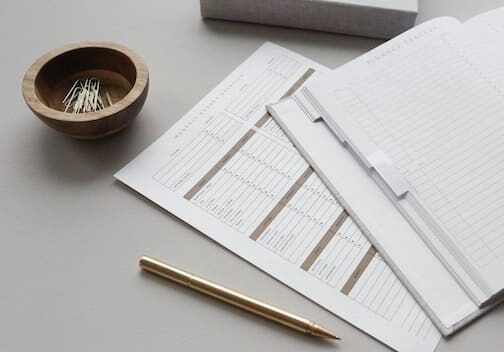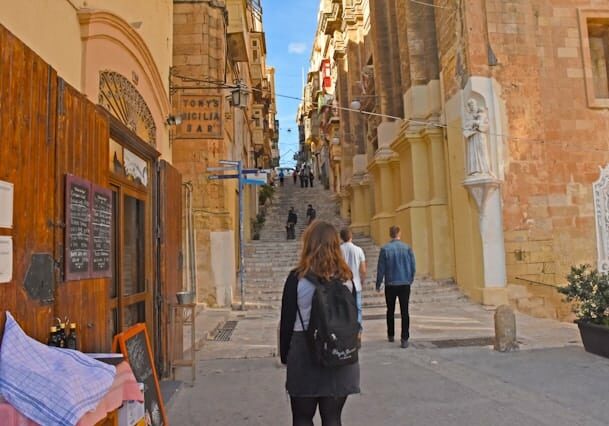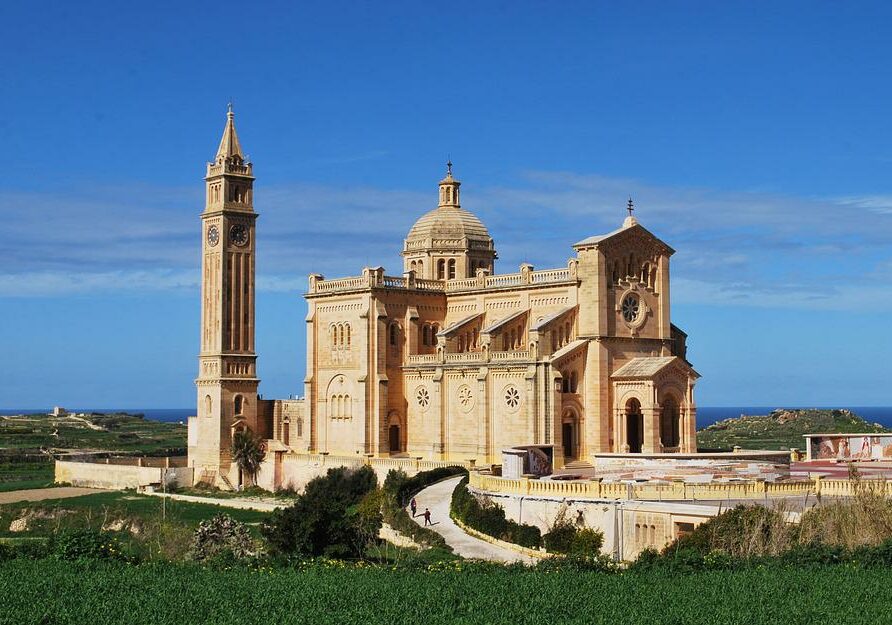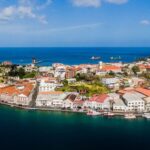Malta is one of the most preferred places when it comes to higher education for students across the world. With a wide range of world-class colleges, breathtaking views, and excellent educational and healthcare facilities, many international students wish to study in Malta.
The Malta study visa provides students from across the globe a chance to study at some of its prestigious universities. In this article, potential university students will learn about:
- The Malta student visa application process
- How to qualify for the visa
- Steps for admission, and much more
Types of Malta Study Visas: International and EU Students
EU students
It is vital to understand the cases in which a student needs to apply for the Malta Student Visa. European Union citizens do not need to apply for a Malta Study Visa. However, if any educational program you enroll in lasts more than 90 days, you need to apply for the Department of Citizenship and Expatriate Affairs in order to stay for a prolonged period of time (long-term study permit).
Non-EU citizens
For non-EU citizens, you do not need to apply for a student visa if the program is short and ends in three months. However, if the course you are enrolling in is more than 90 days, you need to obtain a temporary residence permit after your arrival in Malta for an extended period of time.
Students who require a Malta study Visa need to apply for the following Schengen visas. They are:
- Schengen Type D Visa: This is a long-term permit that allows a student to pursue a course that is more than three months.
- Schengen Type C Visa: this is known as the short-term permit which allows a student to study or stay for three months only. However, if you need to stay for a longer period of time, you can extend your stay by applying for temporary residence.
Malta has a visa application center where students can lodge their visa application form.
How Can International Students Qualify?
International students can apply for a Malta study visa by applying to the online portal. All students need to complete the entire visa application process by demonstrating maintenance and acceptance.
- Acceptance: Students need to show that they have been accepted by an academic program by attaching the declaration by an educational institution.
- Maintenance: applicants need to show their bank statements to prove they have sufficient money to stay and provide for themselves.
Document Requirements for the Malta Student Visa Application Process

- Visa application form: Completed and signed visa application form.
- Valid passport: A valid passport and passport pages that are no more than ten years old.
- Travel Itinerary and Accommodation Proof: Provide evidence of your round-trip tickets, hotel reservations, and itinerary in Malta.
- Insurance: Travel insurance policy and health insurance of 30,000 euros coverage for any emergency.
- Proof of accommodation: Evidence of accommodation during your stay when you visit Malta. This can include a hotel, hostel booking, rental agreement or letter of invitation from a friend or family member.
- Financial evidence: Submit all evidence of a bank statement that has your financial transactions and balance. The bank statement should include all your transactions for the last three months.
- Visa fee payment: Pay the applicable visa application fee.
Benefits of the Malta Student Visa
Cultural exposure
One of the main benefits of the Malta student visa is the exposure to the rich history and culture of Malta. Malta is full to the brim of historic experiences and landmarks that are waiting for young minds to enjoy.
Studying in Malta also provides students with access to a large student community that can open their eyes to different ways of life while also inviting them to enjoy the culture firsthand from Malta citizens.
Safe environment
Children leaving to study abroad can be a stressful time for parents. The good news about applying for the Malta student visa is that students are heading off to a safe and well looked after country. Malta has a low crime rate and is known across Europe for its safety.
Access to high quality education
Studying in Malta offers a world class education. There are a range of reputable educational institutions that offer a variety of courses to suit the aspirations of all students. English is also widely spoken in many Malta universities, meaning students don’t necessarily need to speak Maltese to participate in classes.
Affordable cost of living
One of the main draws to applying for a Malta student visa is the affordable cost of living for students on a budget. When compared with other Western European countries, Malta’s cost of living is relatively affordable.
Work opportunities for students
For many international students, the only way to make their way is to have a part time job. Luckily, those on a Malta student visa are welcome to work part time to help pay for their living costs.
Other Ways to Stay in Malta
Malta offers you a wide range of options when it comes to obtaining a Malta Visa. You can choose from various Malta visa types that allow you to stay in Malta for a prolonged period of time.
- Citizenship by Investment: The Maltese government provides you with opportunities to contribute to the nation’s economic development by investing in real estate, Maltese economy and donating to an NGO of choice. You and your family could be eligible for the Maltese citizenship in return
- Malta digital nomad visa: If you are a remote worker, you can opt for the Malta digital nomad visa and stay in the country for a short period of time. Follow our article to learn more about Malta’s digital nomad visa.
Malta Student Visa Process Step by Step

Here is a step-by-step guide for applying for a Malta study visa:
- Step One: Based on your educational qualifications, career goals, and aspirations, find a course and an institution that can help you get to where you want to be.
- Step Two: Apply to the Malta institution and receive an acceptance letter. This is a vital step before applying for the Malta student visa.
- Step Three: Determine the type of Malta student visa that best suits your needs. For example, a Malta Schengen visa. Then submit all the required documents for the visa application process.
- Step Four: International students should submit their Malta student visa at their nearest embassy or consulate. You may need to book an appointment to do this, so always check what the requirements are.
- Step Five: Attend a visa interview. This is not a requirement for all Malta student visas, but you may be required to attend a visa interview to provide evidence of your study intentions in Malta.
- Step Six: Await approval. This can take anywhere from a few weeks to a few months depending on where you are applying from.
Documents for Malta University Admissions
The exact documents required for your Malta university application will depend on the institution. But here are some basic guidelines.
Students applying for education in Malta need to prepare and sit for IELTS/TOEFL/Cambridge Exams. The first step is to prepare for the language proficiency test which helps them with the admission.
International students need to attach the following documents while forwarding their applications to their respective universities:
- Transcripts of previous academic courses undertaken under the last college or university. They also need to pass their grade document.
- Two recommendation letters from professors.
- An up to date resume.
- Bank statements that show sufficient financial funds to cover the cost of living and tuition fees.
- Completed University application form.
- One-time application fee for the university course.
Earning While Pursuing Studies in Malta
International students can work part-time while pursuing any course of their choice. Many universities and colleges in Malta give you complete access to part-time opportunities so that foreign students can support themselves while living there. Many jobs that students can apply for include sales, translation work, technology, and more, which pay around €800. There are other jobs in restaurants, venues, and more that one can apply for. You can experience a comfortable standard of living in Malta as it is of the most affordable countries to live in among the European nations.
As part of our commitment to providing transparent and reliable services, we are proud to be a licensed agent in Malta, holding the official license number AKM-AGEN. This certification demonstrates our dedication to the highest standards in the investment migration industry and further enhances our ability to offer expert guidance and support to our clients.
How Can Global Citizen Solutions Help You?
Global Citizen Solutions is a boutique migration consultancy firm with years of experience delivering bespoke residence and citizenship by investment solutions for international families. With offices worldwide and an experienced, hands-on team, we have helped hundreds of clients worldwide acquire citizenship, residence visas, or homes while diversifying their portfolios with robust investments.
We guide you from start to finish, taking you beyond your citizenship or residency by investment application.

Frequently Asked Questions About The Malta Student Visa
How can I get a student visa for Malta?
If you are an EU, EAA, or Switzerland citizen you do not require a visa to study in Malta. However, you need to register for an e-Residence Permit.
International students who require a Malta study Visa need to apply for either:
- Schengen Type D Visa: A long-term permit that grants you to pursue the course for more than three months.
- Schengen Type C Visa: A short-term permit which allows a student to study for three months. However, you can extend your short-term visa.
Is Malta accepting student visas now?
Yes, Malta is accepting student visa applications now.
Can I get a Malta student visa with my spouse?
Non-EU students can apply for higher education and get a student visa. However, the spouse will require a residence permit or other Schengen Visa for the time they are planning to stay.
Can an international student work in Malta?
Yes, it is one of the many benefits of applying for the Malta student visa. Many international students work while they are completing their studies at a Malta university. Some popular options include bartending, restaurant services, holiday jobs, and childcare. But there are some restrictions on hours during the months of academic study.
How much funds are required for a Malta student visa?
The funds required for a Malta student visa varies on the type of visa you’re applying for, the educational institutions requirements, and the duration of stay. Typically, for a one-year study period, students need to show they have enough money to cover their living expenses for the duration of study.
Do I need health insurance for a Malta Study Visa?
EU/EAA country residents do not require private health insurance for studying in Malta. However, students from all other countries are required to have private health insurance that covers them for the duration of their stay.
What is the processing time for a Malta study visa?
The processing time for a Maltese student visa is typically around four weeks. However, depending on the individual case and the timing of your application, it may take up to 8-9 weeks. The processing period begins once you submit your visa application form to the embassy or consulate.
What is the success rate of a Malta student visa?
The success rate of Malta student visas is about 95%. Malta welcomes students from across the globe that want to live, study, and experience its fantastic culture firsthand while furthering their education.
How long is a Malta study visa valid for?
A Malta student visa is valid for up to 365 days. If your study program exceeds one year, you will need to apply for a residence permit once you arrive in Malta.



